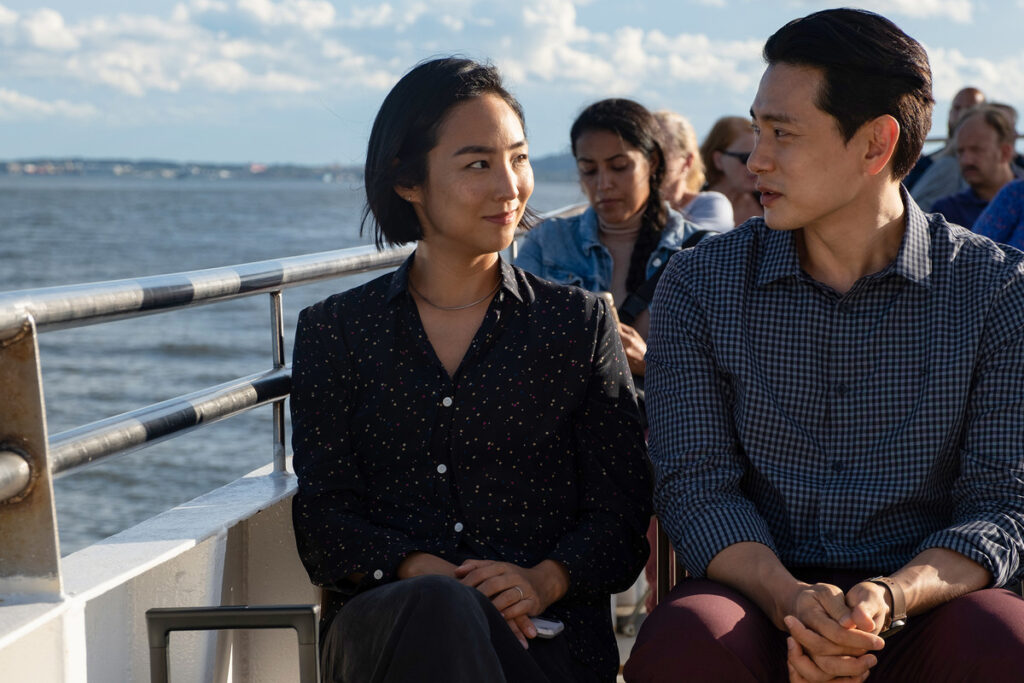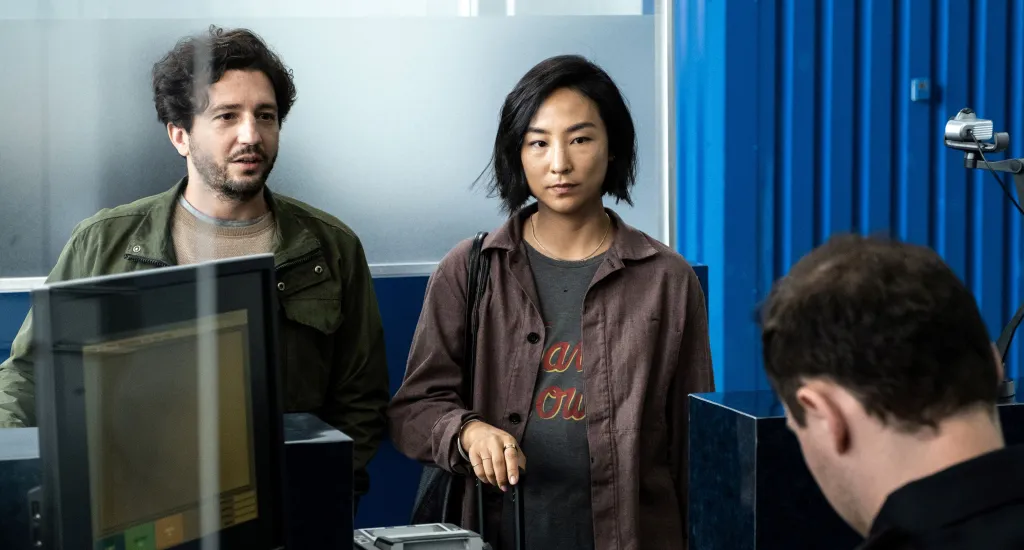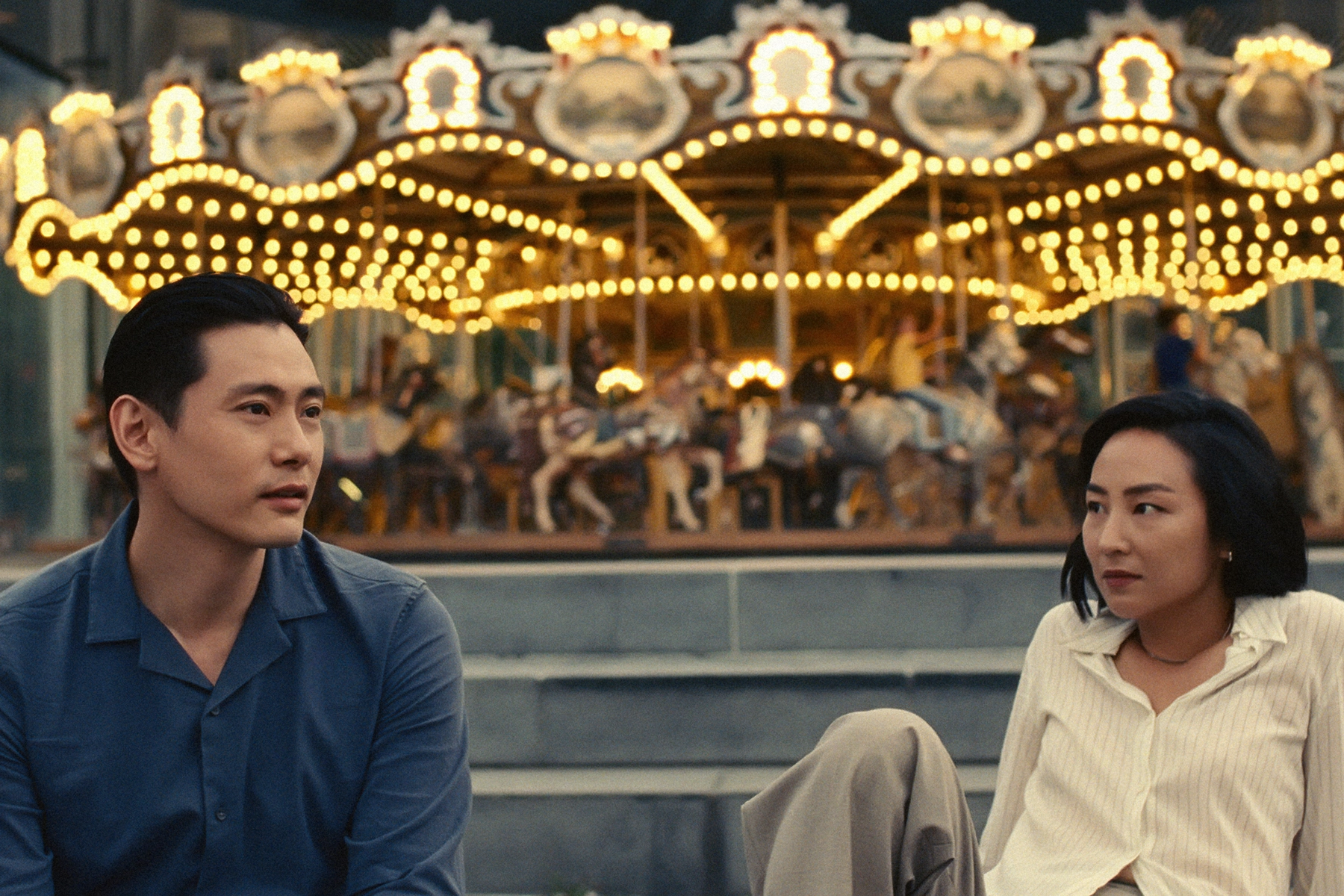Can true love overcome the stark differences between the stages of our lives and the roles we assume, or is it destined to remain a moment in time as our futures progress? Does the relentless pursuit of such all-consuming love hold any true significance, or is it merely a romantic illusion? How can we distinguish between relationships that are meant to forge deep soul connections and those that are simply convenient, and if we do uncover the answer, can we alter our course? Perhaps everyone we meet in life holds special significance; there are no accidents.
Celine Song’s Sundance fave Past Lives, the poignant story of a childhood love suspended across decades and continents, is a contemplation of such things, a tender picture about feelings and destinies, and an accomplished first feature that is decidedly low key until its emotional final act.
In its tale of an ambitious New York playwright named Nora (Greta Lee) who will contend with a haunting, long-time connection to a childhood friend while pursuing a career and marrying someone else, Song crafts a delicate meditation on love, timing, career and separation.
The picture opens on a shot of three thirty-somethings in bar, inviting us to suppose their connection—who is this appealing woman shifting attentions between two different, intently focused young men? It then leaps twenty-four years back in time to Seoul, Korea, where we meet a pair of adolescent best friends, their idyllic existence about to meet a fateful turning point. Young Nora (Seung Ah Moon) and Hae Sung (Seung Min Yim) are grade school pals who share a blossoming affection, inseparable until Nora’s family immigrates to Canada, leaving the boy heartbroken.

Twelve years pass and Nora, now a driven writer living in New York City with aspirations of winning the Pulitzer (as time passes she amusingly aims for the Nobel Peace Prize, Pulitzer and then the Tony), on a whim decides to search for Hae Sung (the quietly authoritative Teo Yoo), who has completed his mandatory Korean military service and is now studying engineering. To their astonishment, they discover that both have been yearning to reconnect.
Thanks to the wonders of Facebook, the duo embarks on a journey of catching up, initially through correspondence and eventually through video chats, reigniting the dormant flames of their unresolved feelings. But as Nora’s professional ambitions begin to take a backseat to her romantic daydreams, she abruptly puts an end to their blossoming courtship, leaving Hae Sung in a state of emotional turmoil. Meanwhile, Nora visits a writer’s retreat, hitting it off with a fellow future author, Arthur (a terrific John Magaro).
Another leap twelve years to the present finds Nora and Arthur married, settled and living in the East Village, while Hae Sung, who has just separated from his long-time girlfriend, still can’t get Nora off his mind. With renewed determination, he finally purchases the long-awaited ticket to New York. When Hae Sung and Nora meet again, an undeniable romantic energy permeates the film, though neither would dare express it. Transfixed, they walk by Jane’s Carousel, lyrically framed by the Brooklyn Bridge, eat ice cream and take the ferry past the Statue of Liberty, chatting about life, careers and relationships, a deeply melancholy air between them.
Immersed in an impossible predicament, the marvelous Yoo, a reservoir of melancholic emotions, delivers a breathtaking performance that echoes Anthony Hopkins’ restrained butler character in the exquisite Merchant Ivory adaptation of Kazuo Ishiguro’s The Remains of the Day. Unspoken sentiments hang heavy in the air, Yoo’s expressions of the unsaid carrying profound significance.
Yet in the final act Nora and Hae Sung finally open up about their feelings to each other, the pair conversing in Korean while English-speaking Arthur (who is learning the language) remains an observer, perceptively attuned to their profound connection. Director Song deftly weaves together the intricate motivations of these three characters, orchestrating a walloping emotional crescendo in a simple concluding moment.

While Yoo is the picture’s standout, Magaro is superb, his patient husband given substantial gravitas in an insightfully written and acted late night bedroom scene, the actor’s low-key humanism believably etching an awareness of the trio’s complicated situational dynamics. Such vulnerability is indicative of Song’s refreshing approach to directing her leading men, who wear their own hearts, and their characters’ futures, on their sleeves.
If the picture is lacking in some connective tissue or broader context regarding the lives of its characters outside of its romantic conundrum, Past Lives directly embraces matters of the heart and nuances of human relationships, approaching them with impressive urgency yet without a trace of melodrama. Additionally, Song offers a thoughtful rumination on immigrant dreams and accomplishments while landing right “where you are supposed to be.”
With each scene, Past Lives gives serious regard to human emotions, individual desires and the consequences of choices made. It is unabashedly affecting.
3 stars




A thoughtful movie which allows the audience to decide for itself about life